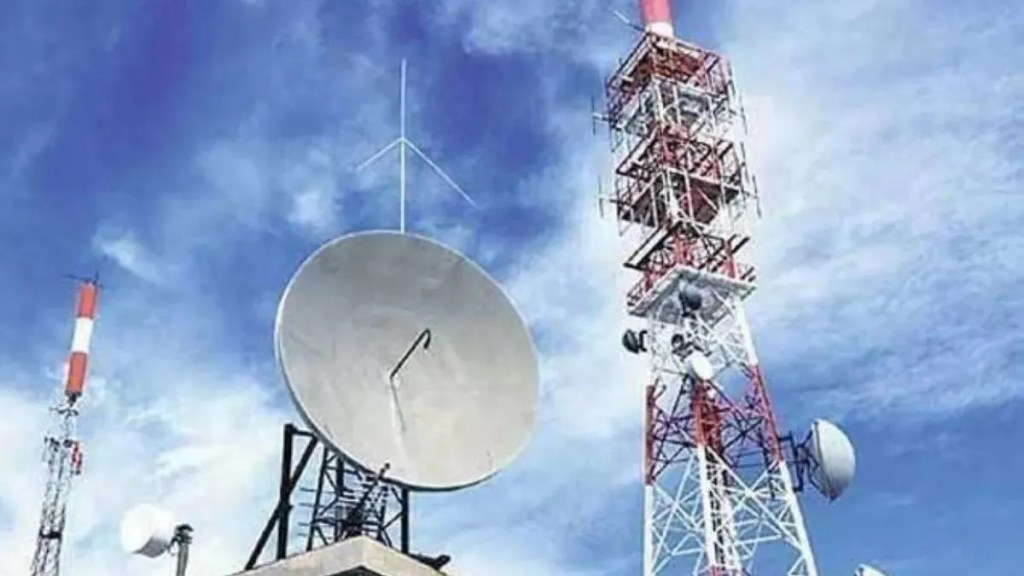A weak subscriber growth, absence of tariff hikes, and slowdown in switch from 2G to 4G are expected to lower the revenue growth of the telecom companies in the October-December quarter, analysts said. According to them, a weak growth in subscribers addition during the quarter can be attributed to higher smartphone prices, down-trading by consumers, and SIM Card consolidation owing to inflationary pressures.
In the October-December quarter, the telecom operators are expected to report a 1% q-o-q growth in the revenue, according to industry estimates, which is lower than 3.6% growth in the July-September quarter. With regards to the bottomline, while Vodafone Idea will likely see an expansion in losses at `7,500 crore, Airtel is expected to see a 49% q-o-q increase in net profit at `3,195 crore, and Jio Platform’s net profit is expected to increase 0.5% to `4,800 crore, according to estimates from ICICI Securities. Jio Platforms is a subsidiary of Reliance Industries, which houses other digital and content-oriented operations of the parent apart from the telecom business.
Reliance Jio is expected to recognise the cost of 4G spectrum acquisition along with 5G spectrum in the October-December quarter, which would restrict its net profit growth. Further, a lower spectrum usage charge is expected to aid the operating margins of all the telecom companies in the quarter. Operating margins are calculated on earnings before interest, taxes, depreciation, and amortisation or Ebitda.”We expect overall wireless Ebitda for the telcos to improve 4% q-o-q, driven by residual impact of spectrum usage charge savings,” Kotak Institutional Equities said.
The spectrum usage charge which earlier was 3-3.5% of AGR, will not be applicable on the purchase of 5G spectrum and other spectrum purchase going forward. The full benefit of SUC will be reflected in the October-December quarter. “Our Q3FY23 estimates suggest a deceleration in mobile revenue growth across telcos due to SIM consolidation, lower benefit of premiumisation from slowdown in 4G net add, and absence of tariff hikes. Subscriber (sub) base for Bharti and VIL is likely to shrink while RJio’s net sub add (+5m) may moderate,” ICICI Securities said in a note.
Bharti Airtel, which has been adding subscribers for quite some time now, is expected to witness a 1-2 million fall in its subscriber base owing to its recent hike in base tariff plans in a few circles. On the other hand, Vodafone Idea would continue to lose subscribers owing to poor quality network spends, and Jio is expected to add about 4-5 million subscribers in October-December.
In the September quarter, Bharti Airtel’s mobile subscriber base was at 328 million, while that of Jio and Vodafone Idea was at 433 million and 228 million, respectively. Lately, growth in subscriber base has been muted owing to inflation. Further, feature phone to smartphone upgrade has been slower due to higher prices of smartphones. Analysts, however, believe that a growth in data usage with the launch of 5G will continue to drive Arpu for the telecom operators in the absence of tariff hikes.In the October-December quarter, the industry’s Arpu is expected to increase 2% to `168. Among the operators, Bharti Airtel’s Arpu is seen at `194, up from `190 in the preceding quarter, whereas Jio’s Arpu is expected to increase marginally to `178, and that of Vodafone Idea will likely increase 2.4% q-o-q to `134.“We expect 4G prepaid tariff hike towards the middle of 2023, while data usage-driven Arpu uplift linked to 5G uptake, will be more gradual,” brokerage house IIFL Securities said.
In the December quarter, the industry’s data volume is expected to grow 4-5% q-o-q to nearly 50 trillion MB, which is less than 8% growth in the preceding quarter.“The drivers of Arpu increase are either tariff, we have had two rounds of tariff increase, or its feature phone to smartphone upgradation or its monetization of data or it is the movement from prepaid to postpaid and so on and so forth. So, those are the four drivers, and those stay intact, and that has not changed in the last few years,” Gopal Vittal, managing director and CEO of Bharti Airtel said in the post-earnings conference call for September quarter.On the other hand, the voice consumption on the telcos’ network will continue to be weak owing to factors like growing communication over OTT apps.
“The reasons for a dip in voice consumption include people moving back to offices in the post Covid-era, and impact of OTT communication apps,” Anshuman Thakur, head of strategy at Reliance Jio had said while detailing the July-September quarter earnings of the company.When the companies will start reporting their earnings later this month, investors will keep a close eye on their guidance on capital expenditure especially with the launch of 5G services, the next leg of tariff hikes, and their plans on tapping the home broadband space, among other things.

